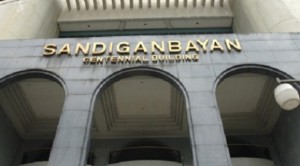MANILA, Philippines — The Sandiganbayan has yet to receive pleas from the senators accused in the pork barrel scam after they were formally charged with plunder before the anti-graft court on Friday.
This after the anti-graft court received the charges against Senators Juan Ponce Enrile, Ramon “Bong” Revilla Jr. and Jose “Jinggoy” Estrada for their alleged involvement in the multibillion-peso racket of diverting public funds to ghost projects for kickbacks.
But representatives of the accused said they would submit motions for judicial determination of probable cause.
Senator Ramon Revilla’s lawyer Noel Gavino said they will try to submit their motion Saturday morning.
Gavino, who was at the Sandiganbayan after the charges were filed, said they failed to submit their motions before the court closed.
Co-accused Richard Cambe, who is Revilla’s former Director III, also planned to submit the same motion.
Other pork barrel scam players are also implicated in the case. Enrile’s co-accused is his former chief of staff Jessica Lucila “Gigi” Reyes, Estrada’s co-accused is former deputy chief of staff Pauline Labayen, and Revilla’s co-accused is his former Director III Richard Cambe. Co-accused for all three senators are Napoles and John Raymund De Asis. Co-accused for both Enrile and Revilla is Ronald John Lim.
Lim is Napoles’ brother and De Asis is her long-time employee.
The Ombudsman said these officials and personalities “willfully, unlawfully, and criminally amass(ed), accumulate(d) and acquire(d) ill-gotten wealth.”
They were also alleged of “taking undue advantage… of their official positions, authority, relationships, connections and influence to unjustly enrich themselves at the expense and to the damage and prejudice of the Filipino people and the Republic of the Philippines.”
The pork barrel in the form of PDAF has long been seen as a tool for political patronage, as well as for graft and corruption.
The practice of allotting billions of public funds to lawmakers for them to ease poverty in their constituencies was struck down by the Supreme Court as unconstitutional at the height of the scam investigation.
RELATED STORIES
